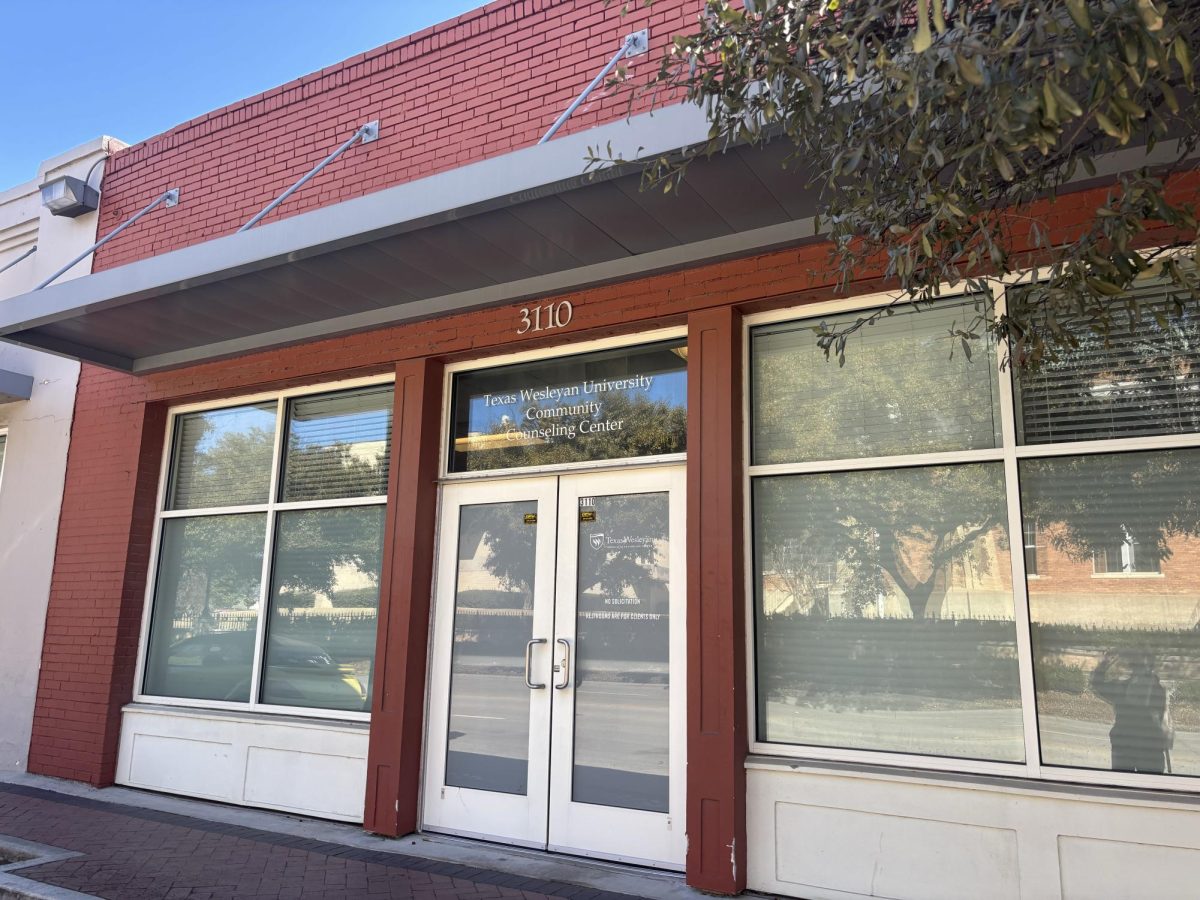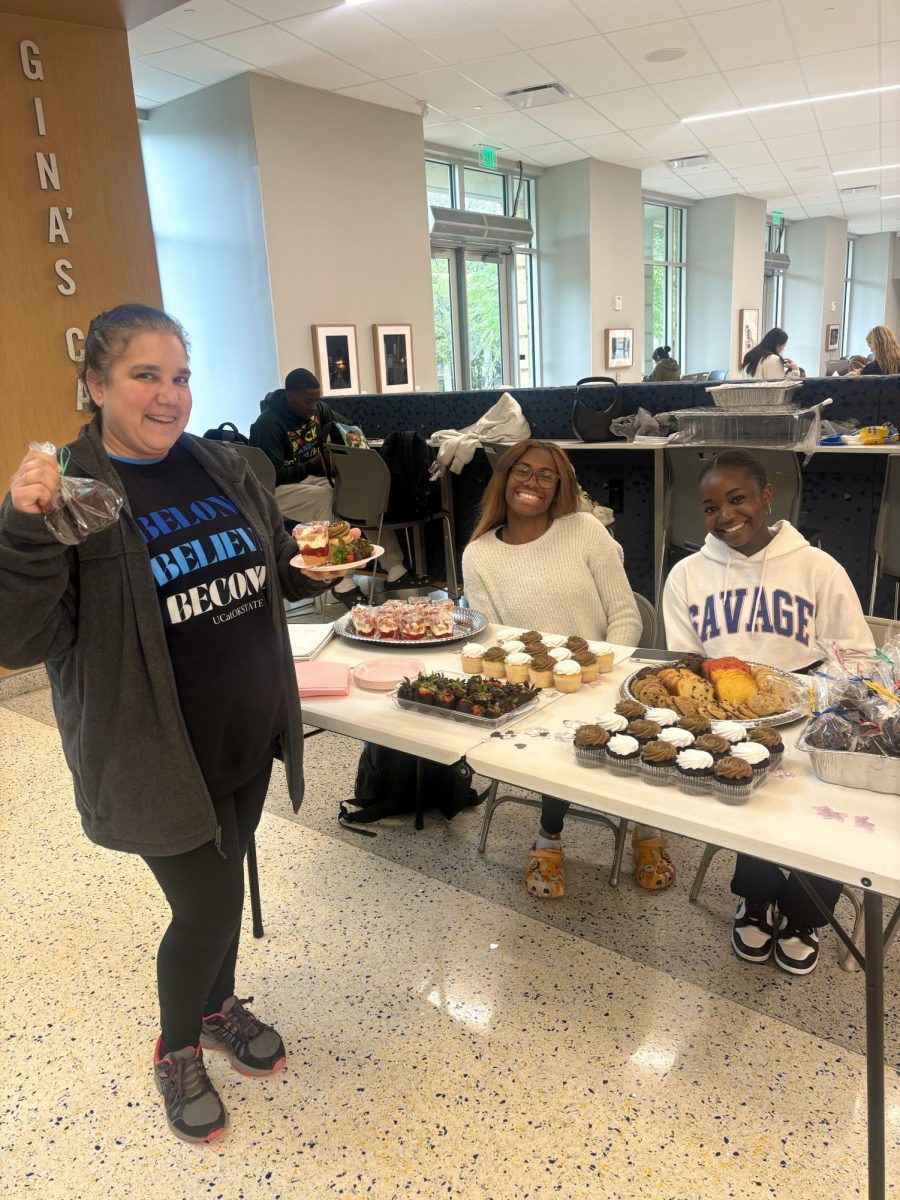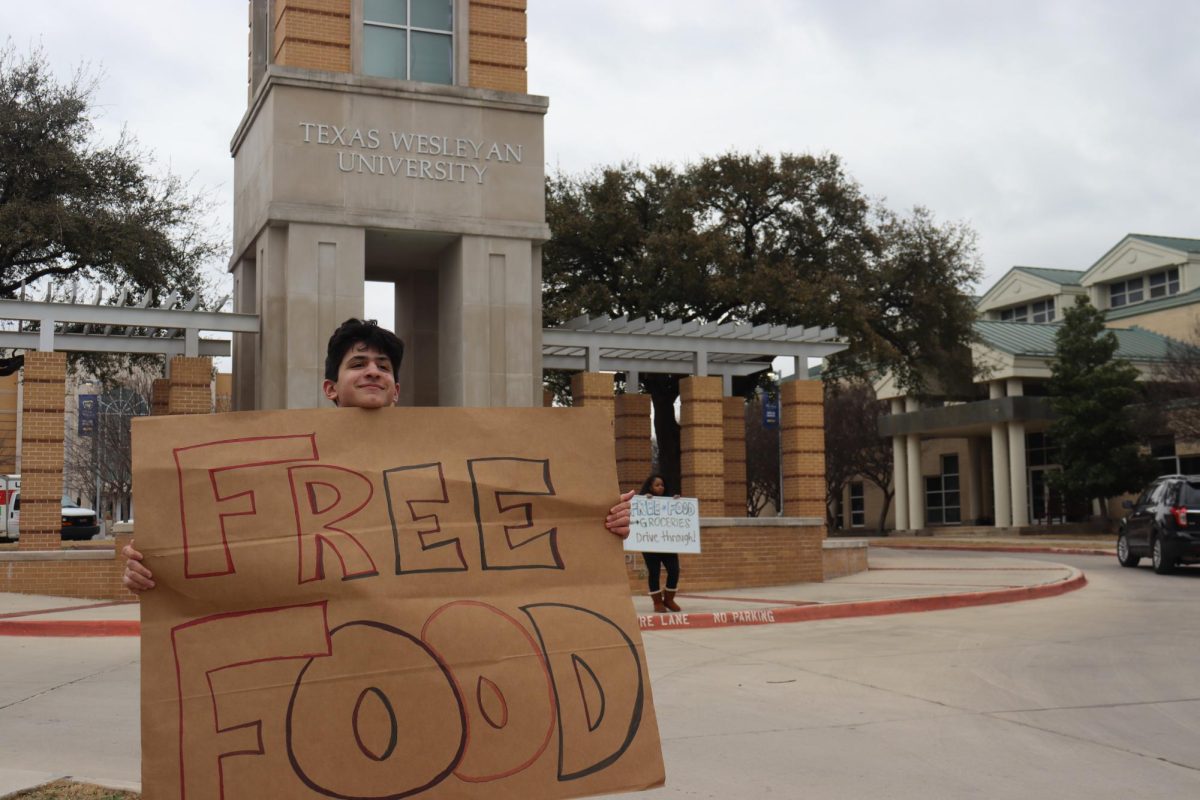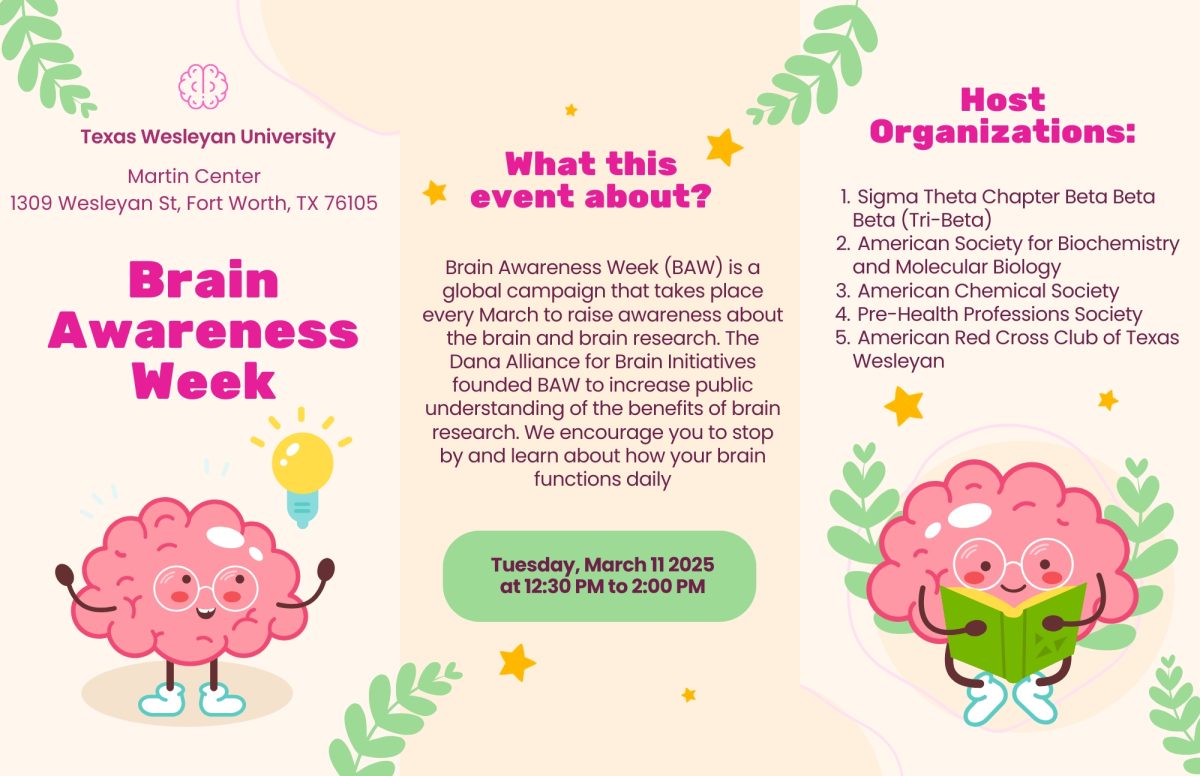Many students at Texas Wesleyan University struggle with stress, anxiety and other personal challenges but are unaware that free counseling services are available on campus. The Texas Wesleyan Counseling Center provides confidential mental health support to students, offering talk therapy and crisis intervention to help them navigate college life.
Located on campus at 3110 E Rosedale St, the Counseling Center provides same-day or next-day appointments for students seeking help, according to Dr. Kathleen Wallace, clinical director at the center.
“Students don’t have to be on a waitlist. We try to get them in as soon as possible,” Wallace said. “They can call, email or even walk in to make an appointment.”
The Counseling Center primarily offers talk therapy, where students can discuss concerns such as academic stress, anxiety, depression, relationship issues and identity challenges.
“Many students are adjusting to being away from home for the first time,” she said. “They are learning how to make decisions on their own and navigate adulthood.”
Graduate student John Hagan, who provides counseling services at the center, highlighted that students often just need a safe space to talk.
“We listen to them, support them, and help them work through their struggles,” Hagan said. “No matter what they’re going through, they are not alone.”

The Counseling Center is available to all Texas Wesleyan students at no cost. While students can schedule weekly counseling sessions, the center does not provide medication or psychiatric services. However, students needing additional support are referred to off-campus providers.
The center ensures confidentiality in all sessions.
“Only authorized faculty members and practicum supervisors can observe sessions for training purposes,” Wallace said. “Even if a session is recorded for supervision, it can only be accessed in the Counseling Center.”
Students can access counseling services in three ways:
- Call or email the Counseling Center (Appointments for the Texas Wesleyan Counseling Center are available by phone call or walk in)
-
- Email: TWCCC@txwes.edu
-
- Phone number: 817-531-4859
- Walk in during office hours
-
- Find out Counseling Center office hour through this link: https://txwes.edu/student-life/student-resources/counseling/
- Use TimelyCare, a 24/7 virtual mental health service available through the university’s student portal
-
- Visit timelycare.com/txwes or download the TimelyCare app from your app store and register with your school email address.
TimelyCare allows students to connect with licensed counselors via video or chat, making mental health support accessible outside of business hours.
“We partner with TimelyCare to ensure students have support even when we’re not available,” Wallace said. “Through TimelyCare, students can speak with a doctor or counselor for immediate assistance.”
Despite the services available, many students hesitate to seek counseling due to stigma or uncertainty.

Amy Battles, a graduate student assistant at the Counseling Center, encourages students to take advantage of the free resources.
“Even if you’re unsure, just come in,” Battles said. “Counseling is already included in your tuition, so don’t let hesitation stop you from getting the help you need.”
The Counseling Center works with faculty and staff to encourage students to seek help. Professors often refer students who seem overwhelmed, and some even walk them to the center for support.
“We want students to know that we are here,” Wallace said. “Even if they just need one or two sessions to talk things through, we are always available.”
Counseling staff emphasize that self-care is essential.

“Being intentional about mental health is important,” Wallace said. “Find what works for you, whether it’s taking a walk, journaling, or just taking deep breaths. Prioritizing mental well-being should be part of your daily routine.”
For more information about the Texas Wesleyan Counseling Center, visit their website or call to make an appointment.
Students can also access TimelyCare through their Canvas portal for after-hours support.
“We want every student to know: you are not alone,” Wallace said. “Help is here when you need it.”









![Pippin, played by Hunter Heart, leads a musical number in the second act of the musical. [Photo courtesy Kris Ikejiri]](https://therambler.org/wp-content/uploads/2025/04/Pippin-Review-1200x800.jpg)
![Harriet and Warren, played by Trinity Chenault and Trent Cole, embrace in a hug [Photo courtesy Lauren Hunt]](https://therambler.org/wp-content/uploads/2025/02/lettersfromthelibrary_01-1200x800.jpg)
![Samantha Barragan celebrates following victory in a bout. [Photo courtesy Tu Pha]](https://therambler.org/wp-content/uploads/2025/05/20250504_164435000_iOS-834x1200.jpg)





![Hunter Heart (center), the play's lead, rehearses a scene alongside other student actors. [Photo courtesy Jacob Sanchez]](https://therambler.org/wp-content/uploads/2025/04/thumbnail_IMG_8412-1200x816.jpg)
![Student actors rehearse for Pippin, Theatre Wesleyan's upcoming musical. [Photo courtesy Jacob Rivera-Sanchez]](https://therambler.org/wp-content/uploads/2025/04/Pippin-Preview-1200x739.jpg)
![[Photo courtesy Brooklyn Rowe]](https://therambler.org/wp-content/uploads/2025/05/CMYK_Shaiza_4227-1080x1200.jpg)

![Lady Rams softball wraps up weekend against Nelson Lions with a victory [6 – 1]](https://therambler.org/wp-content/uploads/2025/04/Screenshot-2025-04-04-100924-1200x647.png)























